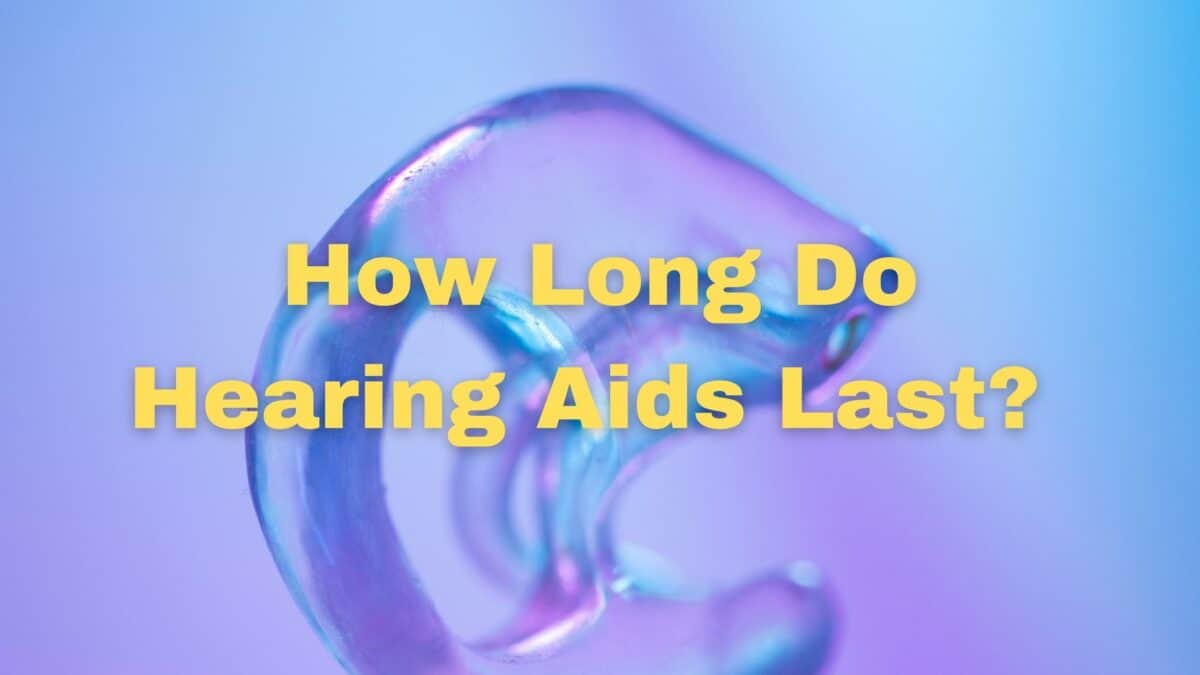Hearing loss can hold you back if it is left untreated. From problems communicating to increased health risks, unaddressed hearing problems can lead to depression, a drop in earning power and even serious cognitive consequences like dementia. Hearing aids are an investment in yourself that supports your physical health and quality of life.
When considering new hearing aids, it is important to understand what to expect from them. One of the most common questions we field is “how long do hearing aids usually last?” Here, we’ll answer that question, considering the average usage life of most hearing aids and some important factors that may change how long your hearing aids serve you.
Hearing Aids Today
Quality hearing aids are built for integrity and performance and they are designed to withstand the challenging conditions of the human ear canal. A protective coating on the outer shell and inner components protect them from moisture, condensation and subsequent corrosion. In the past decades, hearing aids have taken advantage of advancements in digital technology to deliver outstanding sound processing in a small, discrete package. In fact, hearing aid technology has led the way to shrinking digital microcomputers without compromising power. Most hearing aids today are virtually invisible to the casual observer and designed to rest comfortably within or behind the ear.
You can expect a new pair of hearing aids to last, on average, 4 to 6 years -double or triple the life of the average smartphone. Some hearing aids may be viable longer, while others may need to be replaced before the four year mark. Replacing hearing aids is often a matter of upgrading the technology while mitigating repair costs. Most hearing aid repairs are simple and affordable or even free under warranty for the first years of ownership. However, as hearing aid components age, some may need to be replaced. Often, by the time these more involved repairs are needed, upgrading to newer technology is a more cost-effective option.
When To Replace Hearing Aids
Several factors can indicate it is time to get new hearing aids, regardless of the age of your current pair.
First, annual hearing exams are important. Your hearing exam will make sure your current hearing aids are programmed correctly and capable of meeting your hearing needs. If your hearing worsens significantly, a new hearing device may be needed. For example, very small hearing aids that sit entirely in the ear canal are best suited to mild to moderate hearing loss. If your hearing loss shifts from moderate to severe, switching to a hearing aid with more powerful amplification capabilities will better suit your needs. Similarly, profound hearing loss is best addressed with specially designed hearing aids. If your hearing loss becomes profound, it is important to make sure you have a hearing aid that can deliver the sound amplification you need.
Second, Hearing aid technology is constantly advancing to enhance the assistive capabilities and sound performance of devices. In the past several years, a host of new features have been introduced to hearing aids, including rechargeable batteries, digital sound streaming from tv, phone and computer as well as smartphone integration. For some people, new features may be game changing and well worth upgrading your hearing aid to newer technology. Many users report that new streaming audio advancements have helped them better keep up at work and enjoy their leisure time.
Keeping Your Hearing Aids In Top Form
Part of making sure you get the most from your hearing aids is in how you care for them. Basic daily cleaning can prevent serious problems from developing. As a general rule, you need to keep your hearing aids away from water, moisture and small particles like dust, dirt and sand. Always take out your hearing aids before bathing, showering or swimming.
At the end of the day, when you remove your hearing devices before sleeping, wipe them down with a clean and dry cloth. Look for any signs of corrosion or damage to your devices. When not being worn, store your hearing aids in a dehumidifying case that will efficiently dry your hearing aids and reduce risk of interior condensation of moisture.
By taking care of your hearing aids, you care for your hearing and will get the most from what your devices have to offer.

